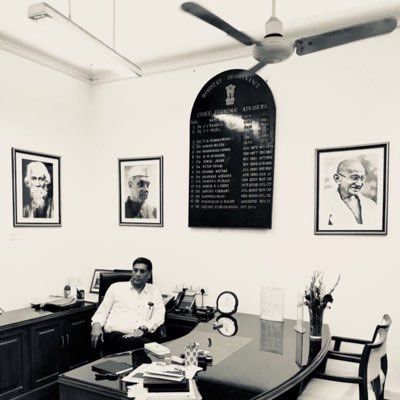
Anirudh Bharadwaj
@anirudhsb
Followers
124
Following
525
Media
3
Statuses
146
Analyst @WorldBank | Previously RA @findevlab | Econ @ScPoEcon
Paris, France
Joined September 2023
#DebtTransparency is not merely about better data disclosure, it is about financing development. Despite recent improvements, major transparency gaps remain. We need to act now to avoid the the vicious cycle that a lack of transparency can set off. ➡️ https://t.co/8KG5WkS3on
0
3
21
Hidden debt = hidden risk. Despite recent improvements, #DebtTransparency gaps remain among some developing countries, potentially giving rise to new hidden debts. We cannot afford to wait for the vicious cycle that a lack of transparency can set off ➡️ https://t.co/FLxAcabtPu
3
15
44
Question for today's GST Council Meeting: How simple is India's GST? Answer in our @bsindia piece is sobering Nearly 45 distinct rates (Table 1) Complexity from duty inversion & arbitrary, value- & end-use based classifications (Table 2) Costs to govt. & taxpayer are huge 1/
19
154
349
I'll be presenting on how to Assess Creditor Contributions to Easing the EM Liquidity Crunch in the opening plenary (paper w @RivettiDiego , @anirudhsb).
1
1
3
17/17 The U.S. must come to terms with the new world order: act as an equal partner, and support India’s ambitions—backing its stance against terrorism, representation in multilateral institutions, defence co‑production, and strive towards strategic/economic autonomy
0
0
1
16/17 To say the least, a stronger US-India alignment has humongous upsides to both the parties rather than the binary world outlook that Tellis portrays
1
0
0
15/17 Tellis suggesting that the ‘United States, now and in the future, is still India’s best hope for successfully parrying China’ is a gross oversimplification of the complexity of India’s security challenges and underselling the nation’s already critical role in geoeconomics
1
0
0
14/17 @d_jaishankar rightly argues that India is no longer the aid‑dependent state of old. Today, it is a pivotal actor shaping markets, technology, and security. Any U.S. approach that treats Delhi as a junior partner is anchored in the past—not the new normal
1
0
0
13/17 Additionally, the potential of anchoring supply chains, diversifying away from China India is central to U.S. resilience. To treat Delhi as anything less than an equal is not just short‑sighted—it’s Washington acting against its own best interests
1
0
0
12/17 From the US’s perspective, India offers a vast consumer market projected, deep pool of skilled workers fueling tech & innovation, and a large diaspora that deepens U.S. - India relations
1
0
0
11/17 As economist Sharan Banerjee from Cornell University pointed out - India accounted for over 10% of the global GDP growth between 2008-23. Nowhere near being a ‘dead economy’ as the POTUS suggested!
1
0
0
10/17 For the US, India is more than a global partner—it is a force multiplier. Strategically, India is the only power with the scale, geography, and military heft to shape outcomes in the Indo‑Pacific...
1
0
0
9/17 Compounding this, U.S. outreach to Pakistan’s Gen. Munir—including talks on oil exploration and security cooperation—revives an old pattern. To Delhi and other, it underscores that Washington defaults to transactional self‑interest, hampering a deeper strategic alliance
1
0
0
8/17 Present frictions deepen mistrust. Trump’s 25% tariffs and the 2019 withdrawal of India’s trade preferences hit at the very core of Delhi’s economic ambitions—signalling that Washington’s commitments shift with domestic politics, not a long‑term strategic vision
1
0
0
7/17 The prosperity of the U.S. and the world economy alike hinge on the Indian growth story making it very much in the interest of the US to equally support Delhi’s economic ambitions & security priorities
1
0
0
6/17 Additionally for Washington, India is not just a strategic balancer vis-a-vis China but a $3.5T+ strong economy growing 6–7% annually and poised to be the world’s 3rd largest by 2030 (IMF)
1
0
0
5/17 Madam @NMenonRao and @d_jaishankar brilliantly highlight the fractured reality of geopolitics in today’s era and India’s pursuit of multipolarity as a form of ‘adaptive realism’ and a ‘pragmatic reading of the evolving international order’
1
0
0
4/17 Although the gaps he identifies is commendable and should be taken seriously by Indian policymakers, the overarching take away is fundamentally flawed
1
0
0
3/17 Under this new normal, Tellis believes that India is being terribly short-sighted in its push for the preservation of a multilateral system instead of clearly aligning itself with the United States to balance out the superior capabilities of its neighbour
1
0
0








